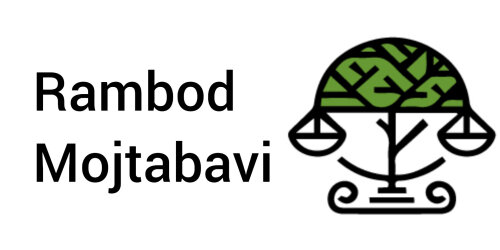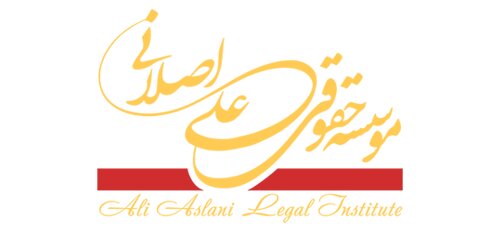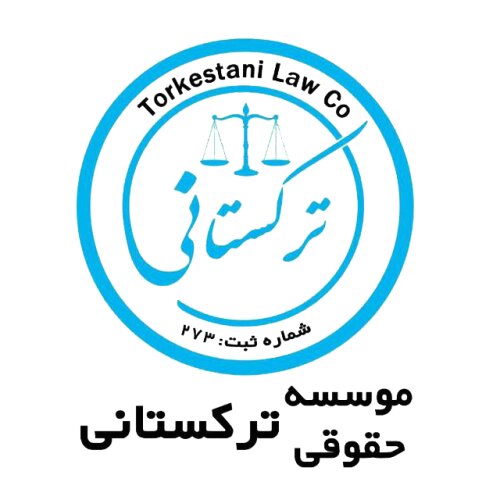Best Restructuring & Insolvency Lawyers in Tehran
Share your needs with us, get contacted by law firms.
Free. Takes 2 min.
List of the best lawyers in Tehran, Iran
About Restructuring & Insolvency Law in Tehran, Iran
Restructuring and insolvency law in Tehran, Iran governs the legal processes that help businesses and individuals address severe financial difficulties. These laws provide frameworks for saving companies that are struggling, helping creditors recover debts, and ensuring fair treatment of all involved. While insolvency typically refers to situations where a person or company cannot meet debt obligations, restructuring focuses on reorganizing assets, operations, or finances to avoid insolvency or bankruptcy.
The Islamic Republic of Iran has its own specific legal system influenced by Islamic law, civil law traditions, and local commercial laws. In Tehran, as the nation's capital and economic hub, many cases related to insolvency and restructuring arise from its dense business landscape. Knowing the regulations and procedures is crucial for anyone facing financial distress or dealing with insolvent entities.
Why You May Need a Lawyer
Legal assistance is often essential in restructuring and insolvency matters for several reasons. Negotiating with creditors, restructuring debts, or liquidating assets requires an in-depth understanding of local laws and commercial practices. Individuals and companies may need a specialized lawyer in situations such as:
- Difficulty paying debts or facing persistent creditor claims
- Exploring options for debt restructuring or settlements
- Initiating or responding to bankruptcy proceedings
- Protecting directors or partners from personal liability
- Understanding the impact of insolvency on business contracts and assets
- Ensuring compliance with Iranian court requirements and official procedures
- Handling cross-border insolvency cases involving foreign creditors or assets
A skilled lawyer can guide clients through each step, protect their interests, and help them achieve the best available outcome according to Iranian law.
Local Laws Overview
In Iran, restructuring and insolvency matters are mainly governed by the Commercial Code and the Iranian Civil Code, with key procedures handled by local commercial courts in Tehran. Some notable legal concepts and frameworks include:
- Bankruptcy (Iflas): Iranian law provides a defined process for declaring an individual or company bankrupt, which typically starts with a court petition.
- Restructuring and Settlement: Parties can pursue consensual arrangements with creditors to settle outstanding debts before formal insolvency proceedings begin.
- Asset Management: Once a debtor is found insolvent, a court-appointed trustee or liquidator assumes control over the assets, managing their distribution.
- Creditor Rights: The law specifies an order of priority among creditors, ensuring that secured and specific types of claims are paid first.
- Protection for Debtors: Exemptions exist to protect certain personal and family assets from liquidation.
- Director and Officer Liability: Iranian law holds directors and officers to specific duties, which, if breached, can lead to personal liability.
- Foreign Involvement: Cases with international aspects can be more complex due to differences in law and recognition of foreign judgments.
Given the complexity of these procedures and severe penalties for non-compliance, professional legal guidance is highly recommended in Tehran.
Frequently Asked Questions
What does insolvency mean in Iranian law?
Insolvency in Iran refers to the inability of a person or company to pay debts as they fall due. It is often identified when liabilities exceed assets and is recognized by a formal court decision.
What is the process for declaring bankruptcy in Tehran?
The process typically starts with a petition to the local commercial court, either by the debtor or by creditors. The court examines financial records and, if insolvency is confirmed, appoints a trustee to manage asset distribution.
Can a company restructure outside of court proceedings?
Yes, companies can negotiate voluntary restructurings and settlements with creditors before entering formal insolvency proceedings. However, these agreements may need to be approved by the court for legal protection.
What assets are protected from liquidation during insolvency?
Iranian law exempts certain personal belongings, essential household items, and property necessary for basic living from liquidation to protect debtors and their families.
Are there criminal consequences for failing to pay debts?
Generally, insolvency and bankruptcy are civil matters, but fraudulent activities, concealment of assets, or deliberate misrepresentation can lead to criminal prosecution.
How are creditors ranked in insolvency proceedings?
Creditors are ranked by law. Secured creditors and those with statutory preferences are generally paid before unsecured creditors. Employees and the government may also have preferential status.
What role does the court-appointed trustee play?
A trustee is appointed by the court in insolvency cases to oversee the collection, valuation, and distribution of assets, ensuring compliance with relevant laws and court orders.
How long does the insolvency process take in Tehran?
The timeline varies based on case complexity, number of creditors, and the type of assets involved. Simple cases may conclude in a few months, while complex or contested matters may take longer.
Can foreign creditors participate in Iranian insolvency proceedings?
Foreign creditors can participate but may face specific procedural steps and legal challenges, especially regarding the enforcement and recognition of their claims.
Can individuals file for personal insolvency in Iran?
Yes, individuals who are unable to pay their debts can file for insolvency. The process and protections are similar to those available for businesses but tailored to individual circumstances.
Additional Resources
If you need information or assistance with restructuring and insolvency matters in Tehran, you may consider contacting the following:
- Tehran Commercial Courts: Responsible for handling insolvency cases and providing official forms and guidance.
- Iranian Bar Association: Provides directories of licensed lawyers specializing in commercial, restructuring, and insolvency law.
- Iran Chamber of Commerce, Industries, Mines and Agriculture: Offers support and resources for businesses in financial distress.
- Bank Markazi Iran (Central Bank of Iran): Regulates financial and banking practices including issues related to insolvency.
- Official Trustee and Liquidators Offices: Court-appointed professionals responsible for managing insolvency estates.
Next Steps
If you are facing financial difficulties or need help with restructuring or insolvency in Tehran, it is important to take the following steps:
- Gather all financial documents including debts, assets, contracts, and correspondence with creditors.
- Consult a qualified restructuring and insolvency lawyer in Tehran to review your situation and advise on your options.
- Discuss whether an out-of-court settlement, formal restructuring, or bankruptcy filing is most appropriate for your circumstances.
- Follow your lawyer's guidance for making court applications, negotiations with creditors, or other necessary actions.
- Stay informed about deadlines, obligations, and court hearings to ensure compliance and protect your rights.
Early legal intervention can provide more solutions and prevent complications, so it is advisable to seek help as soon as financial problems arise.
Lawzana helps you find the best lawyers and law firms in Tehran through a curated and pre-screened list of qualified legal professionals. Our platform offers rankings and detailed profiles of attorneys and law firms, allowing you to compare based on practice areas, including Restructuring & Insolvency, experience, and client feedback.
Each profile includes a description of the firm's areas of practice, client reviews, team members and partners, year of establishment, spoken languages, office locations, contact information, social media presence, and any published articles or resources. Most firms on our platform speak English and are experienced in both local and international legal matters.
Get a quote from top-rated law firms in Tehran, Iran — quickly, securely, and without unnecessary hassle.
Disclaimer:
The information provided on this page is for general informational purposes only and does not constitute legal advice. While we strive to ensure the accuracy and relevance of the content, legal information may change over time, and interpretations of the law can vary. You should always consult with a qualified legal professional for advice specific to your situation.
We disclaim all liability for actions taken or not taken based on the content of this page. If you believe any information is incorrect or outdated, please contact us, and we will review and update it where appropriate.















